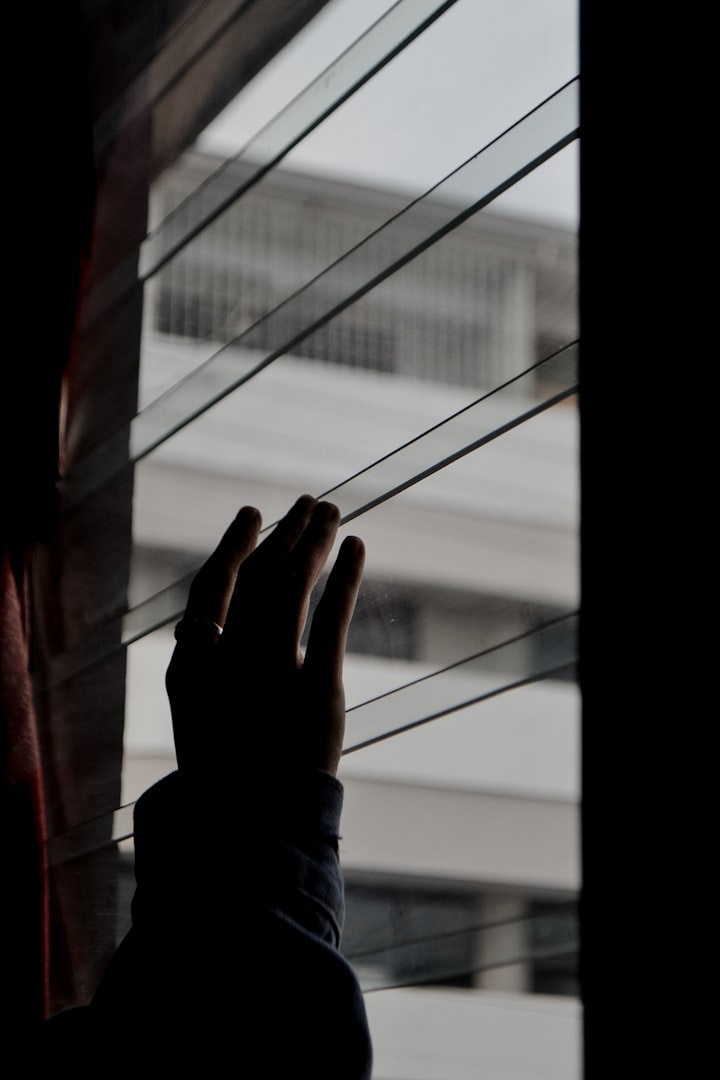Acceptance
(A story of being raised by a father with Borderline Personality Disorder) "Sometimes, I think acceptance is the hardest part... Accepting that there are things out of your control. And sometimes, accepting that you can't make others accept that they need help. "

Sometimes, I think acceptance is the hardest part. Accepting that you have a problem. Accepting that you need help. Accepting that there are things out of your control. And sometimes, accepting that you can't make others accept that they need help.
Hi, I'm Phoenix. I am many things, such as a wife, a daughter, a friend, a teacher. I struggle with depression, anxiety, panic disorder, a screwed up relationship with food and I was raised by a father with Borderline Personality Disorder. Let's talk about it.
As far back as I can remember, he was unstable. I have PTSD from my childhood and teenage years when my father would have his episodes. These BPD episodes could last anywhere from a few days to a few months. There was no escape during these times. The words he would say to me and my mother still haunt me to this day. Going to the grocery store, I hear his whispered screams, and see his angry glares he would give me in the candy aisle if I took too long to choose. I hear his belittling words and angry sneers when I make a decision that I know he wouldn't agree with, although I know this is my journey, and not his. I freeze when someone asks my opinon, out of fear of being degraded for my personal thoughts and feelings. I felt, and sometimes still do, feel insufficent.
The worst part was that this went undiagnosed for so long due to ignorance and denial, that I felt that I was the cause of the anger and constant belittlement in our household. I blamed myself for his violent outbursts and the daily fights between my parents. I blamed myself for the times when we didn't have enough to pay rent or our phone lines were shut off because of overdue payments. I still find myself profusely apologizing for things I have no control over out of fear of others emotions. I walk on eggshells daily.
Everyday though I try and walk a little more relaxed, finding my place on this earth. Reminding myself that it wasn’t my fault, but it was a disease. Some days are easier than others. Some days I resent my father for what he did to me, my siblings and my mother. Other times, I feel sad, knowing that a disease has caused all this emotional turmoil and suffering in the life of my father and those around him. Everyday though, I mourn my father. I think about the days when he was happy. The times he would surprise me with Ice Cream and mini-golfing. The nights we would run out and stock up on snacks and watch our favorite movie. The times when I was crying and he would just hold me and tell me he was there. I love my father. I hate the disease that took him from me. He is still alive, and I wish I could say doing well, although that just wouldn't be true. I tried for so long to keep those lines open between us, but soon the disease took over completely and began to infect my life and those around me. My relationships were suffering and I was beginning to relapse into my old self-destructive habits I had fought so hard to conquer. I had to cut those ties to save myself. That was the hardest decision I have ever had to make and is something that I myself am still learning to accept. I often question that choice because, in reality, I miss my father. When he was healthy, he was an amazing father. Unfortunately, leaving mental illness to fester in your mind, results in the rotting of your life and those around you. It results in sadness and broken homes. In miscommunication and blurred lines. It results in the separation of those whom you love most.
I write this not as a bash against my father. He did not choose to become ill. I write this because it is important to see the difference between a person and their illness. It is important to realize that becoming sick is not a choice, but refusing help is. It is important to see that your actions, or lack thereof, not only affect you but those around you. While my Father was the one diagnosed with Borderline Personality Disorder, me, my mother, and my siblings came out from that fire with burns we can never completely heal from. It is important to see that sometimes the hardest and most painful decisions are the most vital and might be the ones that save you in the end. I write this to bring awareness to acceptance. Accepting you have a problem. Accepting you need help. Accepting there are things out of your control. Accepting that you can’t make others accept that they need help. Accepting that we have to make hard choices to do what's best for us and that sometimes others will not understand. And finally, accepting that it is okay.
About the Creator
Aspen R.B
Let all of our stories be told






Comments
There are no comments for this story
Be the first to respond and start the conversation.